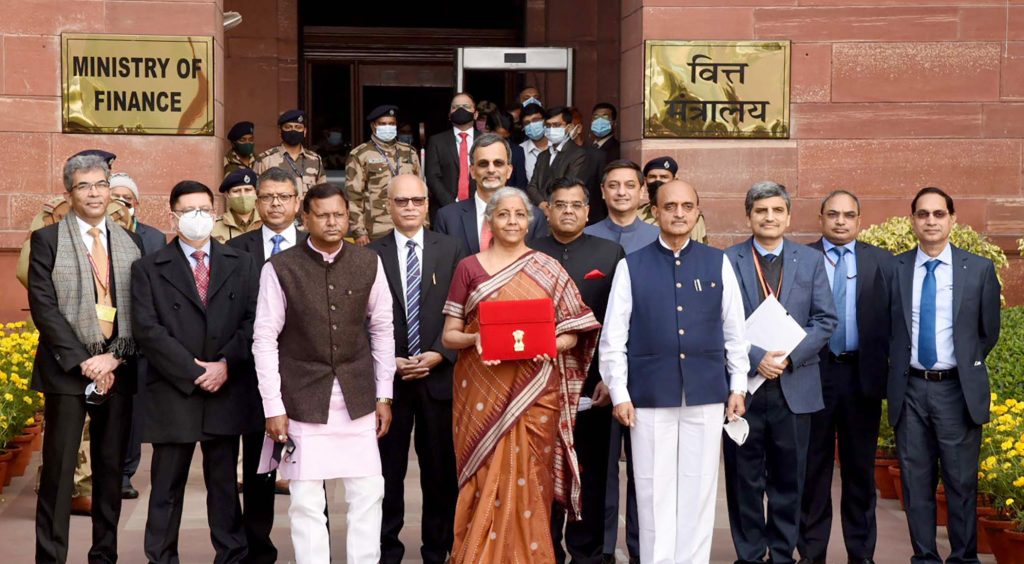Now Reading: The Underlying fallacies of Consumer Protection Bill, 2019; Analyzing Unsound Provisions of the Bill
-
01
The Underlying fallacies of Consumer Protection Bill, 2019; Analyzing Unsound Provisions of the Bill
The Underlying fallacies of Consumer Protection Bill, 2019; Analyzing Unsound Provisions of the Bill
The Underlying fallacies of Consumer Protection Bill, 2019, analyzing Unsound Provisions of the Bill
The Lok Sabha on July 30 passed the Consumer Protection Bill, 2019 which will replace the existing 1986 Act. The passage of the Bill is termed by the government as the accomplishment towards creating an effective consumer redressal mechanism, but contrary to it, the bill contains several anomalies which raises question over centre’s move to incorporate such provisions which are: firstly, in direct violation of Hon’ble Supreme Court’s ruling, secondly, reducing the state’s power and enabling centre to interfere in state’s matter, thereby disturbing the federal structure, and thirdly, vague and absurd hence required more clarifications.
In this article, I will discuss the untold provisions of the Bill, which aren’t highlighted by the government and how it will affect consumer interests.
KEEPING MEDICAL SERVICES OUT OF THE BILL VIOLATES SUPREME COURT’S RULING
Unlike the 2016 Bill, the new Bill altered the definition of services and removed medical services out of its scope, hence now a consumer has only option to face litigation in civil courts to claim their damages as under new bill it can’t approach Central Consumer Protection Authority proposed to be established under the new Bill. In Indian Medical Association v. V.P. Shantha, the 1995 Supreme Court held that the “service rendered to a patient by a medical practitioner (except where the doctor renders service free of charge to every patient or under a contract of personal service), by way of consultation, diagnosis, and treatment, both medicinal and surgical, would fall within the ambit of ‘service’ ”. Furthermore, the Supreme Court reiterated that providing medical assistance for payment carried on by hospitals and members of the medical profession falls within the scope of the expression of service, and in the event of any deficiency in the performance of such service the aggrieved party can invoke the remedies provided under the Act by approaching to the Consumer Forum.
With the rising per capita, health expenditure and illiteracy among consumer often presents instances where consumer felt cheated by the medical practitioners by undertaking the wrong diagnosis on the patients or charging excessive prices for services, therefore it becomes necessary to have checks and balances over the services provided by the medical practitioners. Exempting medical services from the ambit of the new Bill would provide a secure seat for Medical practitioners, and hence would escalate the more cases of fraud and cheating upon the patients.
WHAT WILL HAPPEN TO CASES REGISTERED UNDER 1986 ACT AFTER IT GETS REPEALED?
Section 107(1) of the new Bill provides the repealing provisions which read as “The Consumer Protection Act, 1986 is hereby repealed”, furthermore Section 107(2) only states about anything is done or any action taken or purported to have been done or taken under the old Act shall be repealed and deemed to be taken under the corresponding provisions of the new Bill, but this will happen in case when the actions are taken or to be taken are not inconsistent with the provisions of the new Bill. Now, the important question arises what will happen to the cases pending before different consumer forums at district, state, and national level if they are inconsistent with the provisions of the new Bill (as the old Act is repealed)?
DEPOSIT OF 50% OF THE AMOUNT INVOLVED IN THE MATTER DURING APPEAL TO NATIONAL COMMISSION WILL CAUSE HARDSHIP
In the new Bill, proviso to Section 51(1) states that if any person aggrieved by the State Commission’s order then it may prefer an appeal before the National Commission within the 35 days, and no appeal would be entertained if the appellant hasn’t deposited 50% of the amount awarded to him involved in the matter. I believe incorporating a mandatory provision to deposit 50% of the awarded amount will cause hardship to the appellant; rather what amount is deposited should be kept with the discretion of the Commission itself.
THE BILL LACKS QUANTUM AND QUALIFICATION FOR MEMBERS TO BE APPOINTED TO THE CONSUMER PROTECTION COUNCIL
Section 3 of the proposed Act, talks about the establishment of the Central Consumer Protection Council which is to be chaired by Union Minister of Consumer Affairs. Section 3(2) (b) provides that Central Council shall consist of “such number of other official or non-official members representing such interests as may be prescribed.” The plain reading of the clause gives the unclear and obscure interpretation about the number of members to be appointed and their qualification to be appointed to the CPC. The clause gives Central Govt. an enormous power to appoint anybody (whether he/she is capable to be appointed or not) and in any number as it wishes to appoint.
THE BILL DISTURBS THE FEDERAL STRUCTURE OF GOVERNANCE
Section 6(1) of the Bill provides for the establishment of the State Consumer Protection Council which will function similarly to that of Central Consumer Protection Council and will be headed by Consumer Affairs Minister of the State. Section 6(2) (C) states that “State Council shall consist of such number of other official or non-official members, not exceeding ten, as may be nominated by the Central Government”. It is pertinent to mention that interference of Central Government in appointment to the State Council will be a serious attack on the federal structure of the country as the state should have the right to appoint the members to the State Council.
SECTION 18(2) (A) IS FULL OF MANIFEST ARBITRARINESS AND SHOULD BE STUCK DOWN
Section 18(2) (a) of the Bill, gives the Central Authority the power for inquiry or investigation to be made into violations of consumer rights or unfair trade practices, either suo moto or on a complaint received or on the directions from the Central Government. Incorporating provision for suo moto inquiry and investigation will give the government an unchecked power to search, report and investigate at any shop, company, industry, etc, which is unreasonable, arbitrary and is violative of Article 14 of the Constitution. For example: To receive electoral bonds from the companies or organizations, this provision provides govt. a tool to humiliate them by conducting raids, inquiry, and investigation into their stores, manufacturing units, etc.
The inquiry and investigation are justified if it has valid reasons to support such inquiry and investigation, but the government’s unbridled power to conduct inquiry and investigation needs reconsideration as it will create a phobia in the minds of shopkeepers, manufacturers of being raided any time which is not a good sign for ease of doing business.








